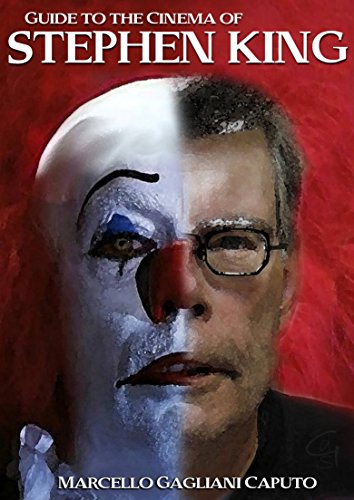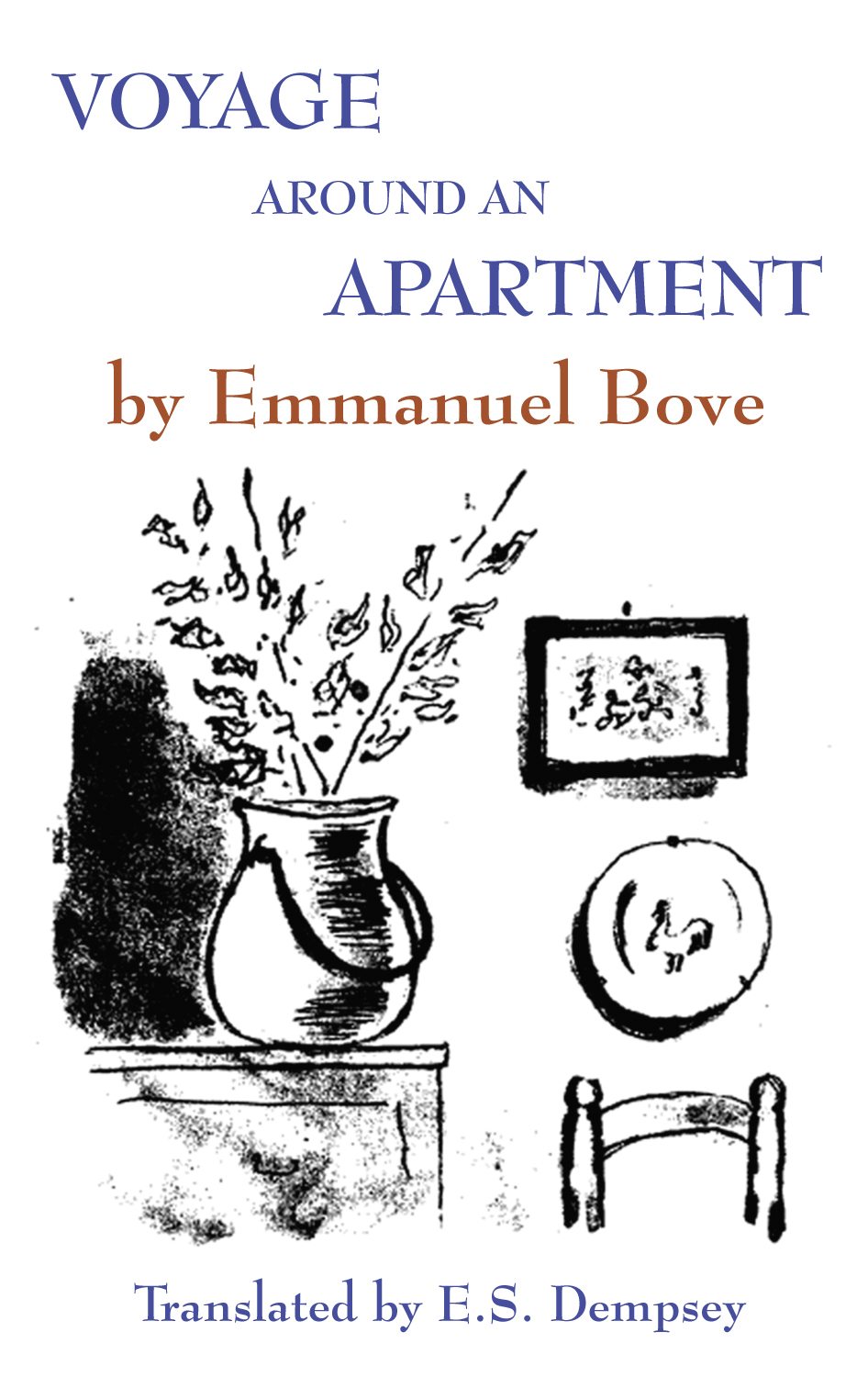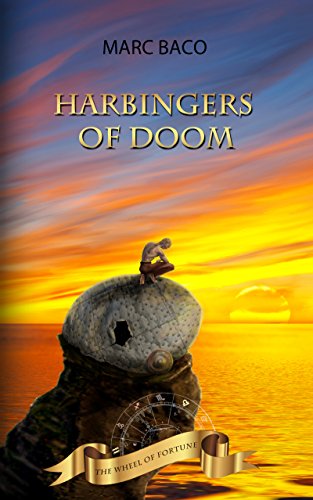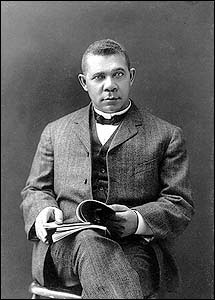
February 12, 1899
IN COMMEMORATION OF THE BIRTH OF ABRAHAM LINCOLN *
* This address was not delivered at the Lincoln Dinner, given by members of the Union League Club on February 12, 1899, owing to the detention of Mr. Washington between New York and Philadelphia in a snow-bound train. It was, however, made two evenings afterward at a public reception extended to Mr. Washington by Mr. Henry C. Davis at his residence, 902 Spruce Street, Philadelphia.
Gentlemen :
You ask one whom the Great Emancipator found
a piece of property and left an American citizen to
speak of Abraham Lincoln.
My first acquaintance with our hero and benefactor is this :
Night after night, before the dawn of day, on an old slave plantation
in Virginia, I recall the form of my sainted mother, bending over
a batch of rags that enveloped my body, on a dirt floor,
breathing a fervent prayer to Heaven that ” Marsa Lincoln ” might succeed,
and that one day she and I might be free ; and so, on your invitation, I
come here to-night to celebrate with you the answer to those prayers.
But be it far from me to revive the bitter memories of the past,
nor would I narrow the work of Abraham Lincoln to the black race
of this country ; rather would I call him the Emancipator of
America — the liberator of the white man North,
of the white man South; the one who, in unshackling
the chains of the Negro, has turned loose the enslaved
forces of nature in the South, and has knit all sections
of our country together by the indissoluble bonds of commerce.
To the man in the North who cherished
hatred against the South, Lincoln brought freedom.
To the white man who landed at Jamestown years ago,
with hopes as bright and prospects as cheering as those
who stepped ashore on Plymouth Rock, Lincoln, for the
first time, gave an opportunity to breathe the air of
unfettered freedom — a freedom from dependence on
others’ labor to the independence of self-labor ;
freedom to transform unused and dwarfed hands into
skilled and productive hands ; to change labor from
drudgery into that which is dignified and glorified ;
to change local commerce into trade with the world ;
to change the Negro from an ignorant man into an
intelligent man ; to change sympathies that were local
and narrow into love and good-will for all mankind ;
freedom to change stagnation into growth, weakness
into power; yea, to us all, your race and mine,
Lincoln has been a great emancipator.
April 6
 |
Lowell Thomas (born April 6, 1892) – U.S. newsman, broadcaster, author – With Lawrence in Arabia (1924) |
After the capture of Akaba, Lawrence and his men
lived for ten days on unripe dates and on the meat of
camels which had been killed in the battle of Abu e]
Lissal. They were compelled to kill their own
riding-camels at the rate of two a day to save them’
selves and their hundreds of prisoners. Then in
order to keep his army from starving, Lawrence
jumped on his racing-camel and rode her contin-
uously for twenty-two hours across the uninhabited
mountains and desert valleys of the Sinai Peninsula.
Completely worn out after this record ride, which
came at the end of two months’ continuous fighting
and a thousand miles of trekking across one of the
most barren parts of the earth and living on soggy
unleavened bread and dates and without having a
bath for more than a month, he turned his camel over
to an M.P. at one of the street corners in Port
Tewfik, Suez, walked a little unsteadily into the
Sinai Hotel, and ordered a bath. For three hours
he remained in the tub with a procession of Berberine
boys serving him cool drinks. That day, he de-
clares, was the nearest approach to the Mohammedan
idea of paradise that he ever expects to experience.
From Suez he went on to Ismailia, the midway station on the canal.
See this 1937 short film Frontiers of America, a pro-U.S.
editorial by Lowell Thomas:
http://www.archive.org/details/Frontier1937
April 7
| Gabriela Mistral (Lucila Godoy y Alcayaga) (born April 7, 1889) – Chilean poet, Nobel Prize for Literature winner (1945) – Desolación (1922) |
Listen to Dani Villanueva read La Tierra (in Spanish):
http://www.archive.org/details/Grabacin_3_D__Villanueva
La Tierra
Niño indio, si estás cansado, / Indian boy, if you are tired,
tú te acuestas sobre la Tierra, / Lay yourself down on the Earth,
y lo mismo si estás alegre, / and do the same if you are happy,
hijo mío, juega con ella… / My son, play with her…
Se oyen cosas maravillosas / Wondrous things are heard
al tambor indio de la Tierra: / Through Earth’s Indian drum:
se oye el fuego que sube y baja / One hears the fire that leaps and falls
buscando el cielo, y no sosiega. / Searching for the sky, never to be soothed.
Rueda y rueda, se oyen los ríos / Round and round, the rivers sound
en cascadas que no se cuentan. / in countless cascades.
Se oyen mugir los animales; / The animals lowing;
se oye el hacha comer la selva. / The ax consuming the forest.
Se oyen sonar telares indios. / The sound of Indian cloth looms.
Se oyen trillas, se oyen fiestas. / One hears harvesting, one hears partying.
Donde el indio lo está llamando, / When the Indian is calling it,
el tambor indio le contesta, / His drum answers,
y tañe cerca y tañe lejos, / Drumming near and drumming far,
como el que huye y que regresa… / as it flees and then returns…
Todo lo toma, todo lo carga / It takes it all, all is carried
el lomo santo de la Tierra: / on the Earth’s blessed back:
lo que camina, lo que duerme, / All that walks, all that sleeps,
lo que retoza y lo que pena; / All that frolics, all that suffers;
y lleva vivos y lleva muertos / It bears the living and it bears the dead
el tambor indio de la Tierra. / This Indian drum of the Earth.
Cuando muera, no llores, hijo: / When there is a death, do not cry, son:
pecho a pecho ponte con ella, / Put your breast against hers,
y si sujetas los alientos / And if there is breathing
como que todo o nada fueras, / As if it were all or nothing,
tú escucharás subir su brazo / You will listen and raise the arm
que me tenía y que me entrega, / that I had and now surrender,
y la madre que estaba rota / And the mother who was broken
tú la verás volver entera. / You will see returned whole.
Janis Ian (born April 7, 1951) – U.S. songwriter, singer – Society’s Child
See Janis Ian perform Society’s Child on the Smothers Brothers Show in 1967:
Janis Ian explains how guitars kill fascists at a 2008 outdoor concert in New York:
April 8
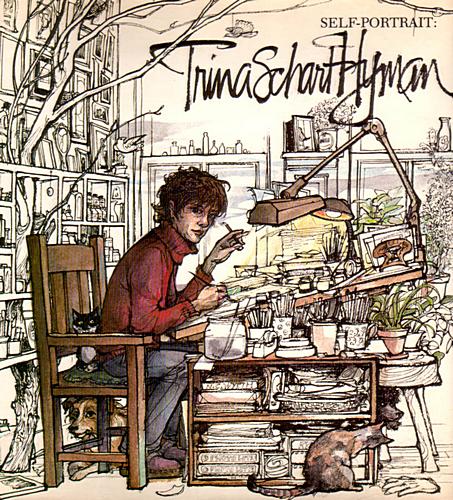 Self-Portrait, Trina Schart Hyman |
Trina Schart Hyman (born April 8, 1939) – U.S. illustrator of children’s books – Merlin and the Making of the King (2005) |
| Read Trina Schart Hyman’s biography http://www.ortakales.com/illustrators/Hyman3.html |
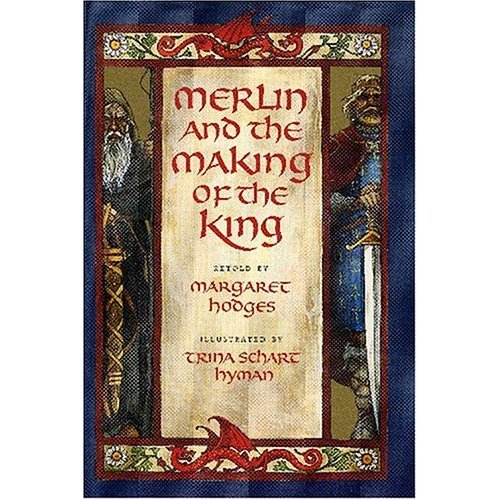 |
|
|
April 9
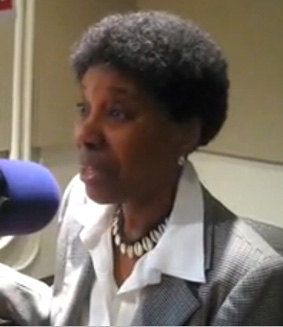 |
Paule Marshall (Paule Burke) (b. 1929) – U.S. novelist, short-story writer – The Fisher King (2000) |
Listen to Paule talk about her writing inspirations from her family and Langston Hughes in this podcast:
Paule Marshall on her writing
April 10
| John M. (Mike) Ford (b. 1957) – U.S. science fiction author, poet – The Dragon Waiting |
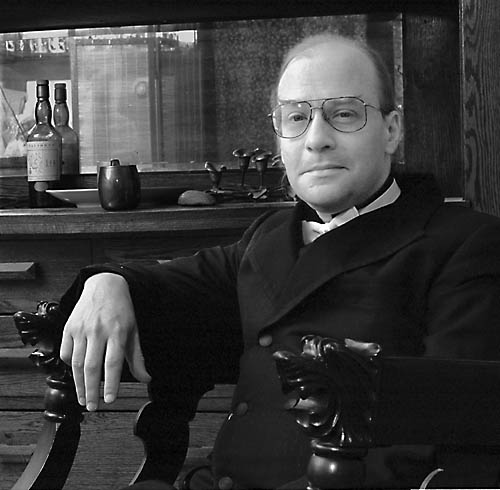 John M. Ford |
Excerpt from Ford’s poem Winter Solstice, Camelot Station
Camelot is served
By a sixteen-track stub terminal done in High Gothick Style,
The tracks covered by a single great barrel-vaulted glass roof framed upon iron,
At once looking back to the Romans and ahead to the Brunels.
Beneath its rotunda, just to the left of the ticket windows,
Is a mosaic floor depicting the Round Table
(Where all knights, regardless of their station of origin
Or class of accommodation, are equal),
And around it murals of knightly deeds in action
(Slaying dragons, righting wrongs, rescuing maidens tied to the tracks).
It is the only terminal, other than Gare d’Avalon in Paris,
To be hung with original tapestries,
And its lavatories rival those at the Great Gate of Kiev Central.
During a peak season such as this, some eighty trains a day pass through,
Five times the frequency at the old Londinium Terminus,
Ten times the number the Druid towermen knew.
Visit the Greenbelt blog for the whole poem:
http://thegreenbelt.blogspot.com/2006/12/winter-solstice-camelot-station.html
Attila József (b. 1905) – Hungarian poet – Nagyon fáj (It Hurts A Lot) (1936)
Listen to Nagyon fáj in Hungarian on Youtube:
First few verses of Nagyon fáj: [Translated by John Batki]*
Kivül-belől / Inside, outside
leselkedő halál elől / death stalks your hide
(mint lukba megriadt egérke) / (scared little mouse, run for your hole)
amíg hevülsz, / As long as you yearn
az asszonyhoz úgy menekülsz, / you’ll keep running to her
hogy óvjon karja, öle, térde. / for sheltering arms, knees, her whole.
Nemcsak a lágy, / Being, lured there
meleg öl csal, nemcsak a vágy, / by her warm lap and desire;
de odataszít a muszáj is – / you are thrown there by your need.
ezért ölel / And so all who find
minden, ami asszonyra lel, / woman’s embrace, cling and grind
míg el nem fehérül a száj is. / until their lips turn white with greed.
Kettős teher / Twofold guerdon,
s kettős kincs, hogy szeretni kell. / twofold treasure, this love-burden.
Ki szeret s párra nem találhat, / He who loves and finds no other
oly hontalan, / is as homeless
mint amilyen gyámoltalan / as a wild beast, and as helpless;
a szükségét végző vadállat / an animal in need, sans shelter.
Nincsen egyéb / You will find no other
menedékünk, a kés hegyét / refuge; even if you dare
bár anyádnak szegezd, te bátor! / point the knife at your mother!
És lásd, akadt / There was one who had heard
nő, ki érti e szavakat, / the meaning of my words
de mégis ellökött magától / but still thrusts me away from her.
Excerpt of Attila József’s Birthday Poem
So–I lived to be thirty-two!
This poem is a surprise, too:
itty-
bitty
gift that came my way
in a corner of this cafe,
from me
to me.
My thirty-two years have flown,
never had two hundred a month of my own.
That’s right,
some birthright!
I could have been a college teacher
instead of an idle pen-pusher,
boho
hobo.
|
* Thanks to John Batki for permission to use his translations. See his book Winter Night: Selected Poems of Attila József (Oberlin Press, 1997) available at Amazon.com. |
 |
| Nazanin Afshin-Jam (b. 1979) – Iranian-Canadian human rights activist, singer/songwriter – Someday (song) |
| See Nazanin sing Someday on Youtube: |
| They were on the march then In 1978 They filled our minds with hate They deceived the nation In the name of religion And soon it was too late When the soldiers came We were on the run Our lives forever changed That was no solution Regressive revolution Together we must standChorus: Someday We will find a way Someday Someday Someday Someday The darkness fades away Someday SomedayI’m calling all the children Now that were all grown up Is it time to make a change Take this old oppression With a new aggression Redeem our rightful placeChorus |
I have a new solution
It’s called progressive revolution
And someday
Is right now
Chorus




